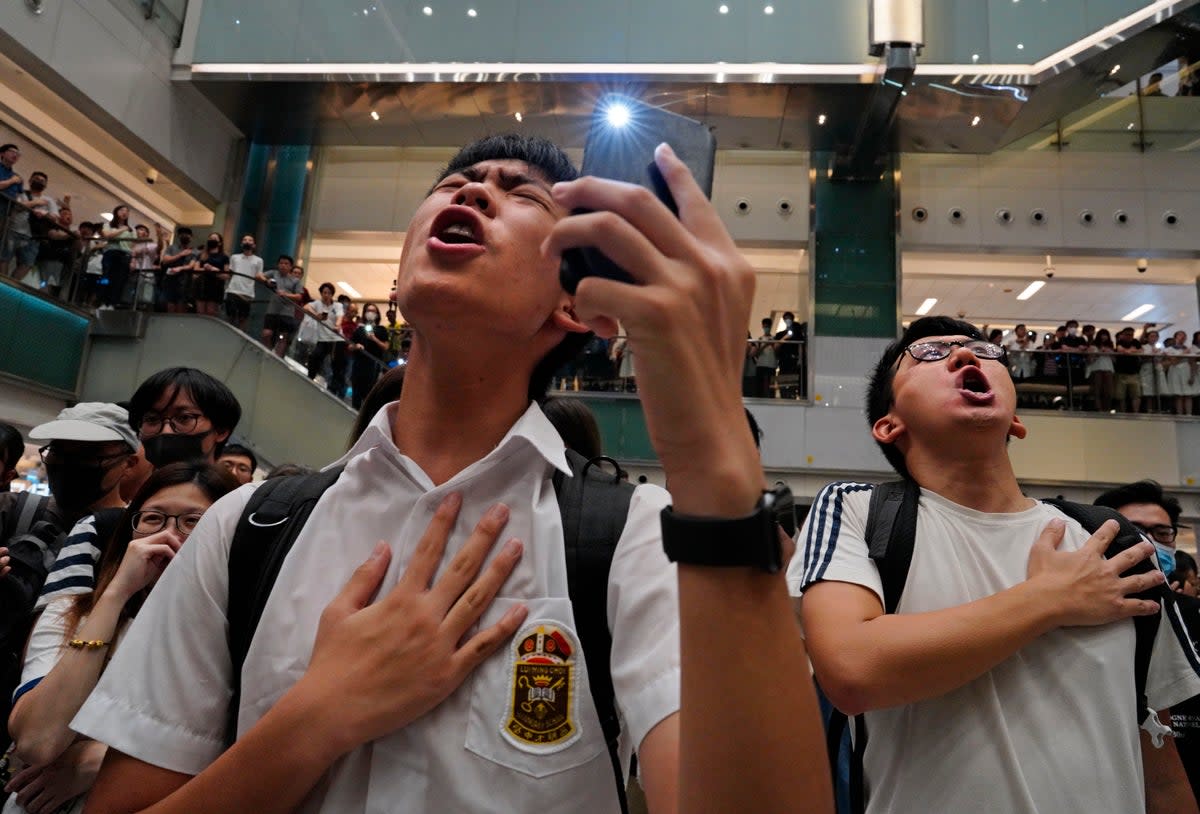Protest song ‘Glory to Hong Kong’ banned after appeals court ruling

A Hong Kong appeals court has granted the government’s request to ban the popular protest song “Glory to Hong Kong”, overturning a previous ruling.
The song, sung during the 2019 anti-government protests, was mistakenly played as the city’s anthem at international ceremonies instead of China’s “March of the Volunteers”, causing controversy and concern in Beijing.
Judge Anthony Chan last year struck down the city government’s request to ban the song from the internet. “I believe that the intrusion to freedom of expression here, especially to innocent third parties, is what is referred to in public law as chilling effects,” he said.
The latest ruling marks the first time a song has been banned since the territory’s handover to China in 1997.
The government’s critics argue that the ban further restricts freedom of expression in Hong Kong.
The appeals court’s decision was reportedly based on the song’s perceived intent as a “weapon” and the need to address perceived criminal activities associated with it.
“We accept the assessment of the executive that prosecutions alone are clearly not adequate to tackle the acute criminal problems and that there is a compelling need for an injunction,” judge Jeremy Poon said in his ruling.
He added the interlocutory injunction was necessary to persuade internet platform operators to remove “problematic videos in connection with the song”.
The ban specifically focuses on distribution of material advocating for the separation of Hong Kong from China and any misrepresentation of the song as the city’s national anthem. However, there are exemptions for lawful journalistic and academic use.
The ruling warns that failure to adhere to these restrictions could lead to fines or imprisonment.
Previously, people have been arrested for playing “Glory to Hong Kong” in public, cited for offences like playing a musical instrument without a permit.
The song, however, remains accessible on platforms like Spotify, Apple Music, and YouTube.
Beijing’s implementation of a national security law in 2020 sparked a protest and led to the arrest of several activists in Hong Kong while a local security law further raised concerns about the erosion of civil liberties in the city.
The government’s push to ban the protest song follows its failed attempt to prioritise China’s national anthem over it in online searches.
A Chinese foreign ministry spokesman said on Wednesday that the ban on the song was a “necessary measure by (Hong Kong) to fulfil its responsibility of safeguarding national security”.
Additional reporting by agencies


